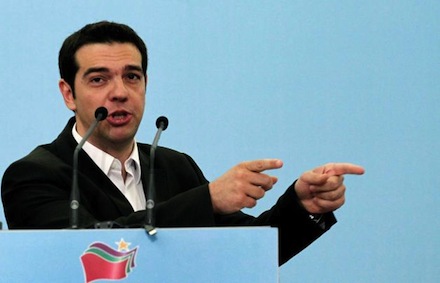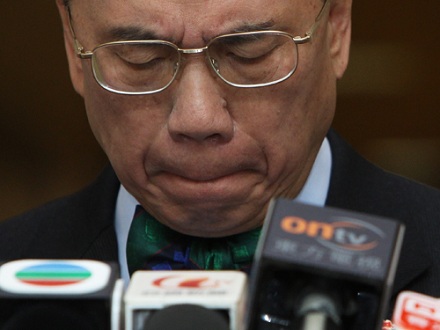Alexis Tsipras laid out his party’s program for the upcoming June 17 Greek election on Friday.![]()
Tsipras said a SYRIZA government would immediately reject the memorandum on coming to power and ask for Greece’s debt to be restructured or for a moratorium on repayments. It would then repeal a reduction to the minimum wage and extend unemployment benefit to two years. It would also repeal recent labor market reforms limiting collective contracts.
Tsipras set out how his government would stabilize the economy. He said public spending would be set at between 43 and 46 percent of GDP, rather than under 36 percent as agreed in the memorandum. The SYRIZA leader said he would raise revenues by cutting down on tax evasion, waste and corruption and forming an assets register for all Greeks at home and abroad. The wealthy would pay more under a new tax system, he said.
The key takeaway point is that it is not substantively different from the program under which he led SYRIZA, the Coalition of the Radical Left (Συνασπισμός Ριζοσπαστικής Αριστεράς) in the previous May elections.
It does, however, highlight a subtle but unmistakable shift in the tone of Tsipras’s main rival, Antonis Samaras, the leader of New Democracy (Νέα Δημοκρατία), the center-right pro-bailout party that finished first in the May election. Samaras in recent days has increasingly been taking a softer line on renegotiating Greece’s austerity program with the European Commission, the European Central Bank and the International Monetary Fund, all of which granted two bailouts to Greece in exchange for its adoption of austerity measures and labor market reforms.
Although Samaras has raged throughout both campaigns that a SYRIZA win would be catastrophic and lead to Greece’s exit from the eurozone, it’s clear that in the second campaign, ND and the pro-bailout PASOK (Panhellenic Socialist Movement — Πανελλήνιο Σοσιαλιστικό Κίνημα) are moving toward SYRIZA’s position. Continue reading Tsipras outlines SYRIZA program, as Samaras shifts tone toward bailout renegotiation

